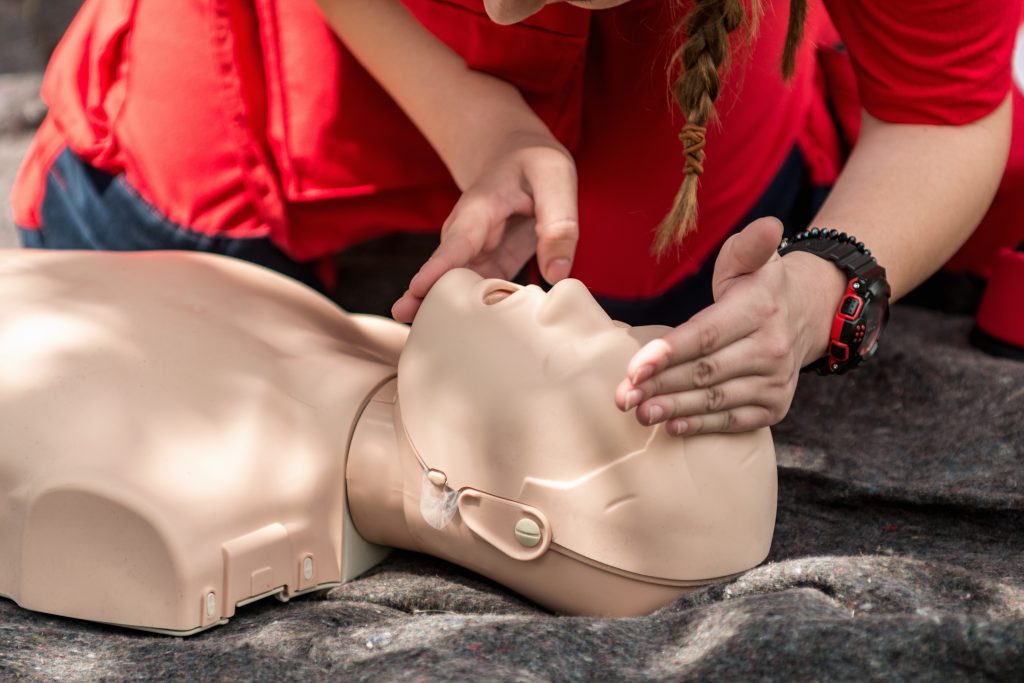
In a life-threatening cardiac emergency, there is no room for hesitation. The way you train directly impacts how well you respond under pressure. While online ACLS courses offer flexibility, Instructor-Led ACLS Training offers something far more essential: real-world experience, immediate feedback, and situational readiness.
At Nationwide Health CPR, we see how hands-on training transforms confidence and performance. This format goes beyond theory, empowering healthcare professionals to act quickly, communicate effectively, and manage high-stakes events when every second matters. Here are five reasons instructor-led ACLS training remains the most effective approach.
An online course might walk you through a procedure, but it cannot step in when your form is off or when you miss a key step. In contrast, instructor-led ACLS training provides real-time correction from certified professionals with field experience.
Instructors watch your technique closely, whether you are ventilating a patient, assessing a cardiac rhythm, or initiating medication. They offer guidance in the moment, helping you correct mistakes before they become habits. This kind of personalized coaching is not only more effective—it is often the missing link between memorizing a protocol and truly mastering it.
Instructors also provide professional insight drawn from real medical emergencies, giving you context that helps the material click in ways a screen never could.
Hands-on training introduces stress-tested scenarios that are difficult to simulate in a self-paced setting. You will participate in simulated codes involving cardiac arrest, symptomatic bradycardia, or post-resuscitation care, applying your knowledge in real time with your team.
This experiential learning model challenges you to think fast, adapt to changing conditions, and prioritize actions just as you would in an ER or ICU. It teaches you not only what to do, but how to respond with urgency, composure, and clarity.
These scenarios go far beyond academic quizzes. They help you prepare emotionally as well, ensuring that when a real emergency strikes, you are focused and ready to lead.
Emergency care is never a solo act. Successful ACLS requires a coordinated effort, where each member of the response team knows their role and executes it without delay. This is something that online learning simply cannot replicate.
Instructor-led ACLS courses emphasize team dynamics, closed-loop communication, and leadership under pressure. You will practice assigning responsibilities, supporting your team, and stepping up to lead when necessary.
These skills are critical in environments like trauma bays and intensive care units. Practicing them in a live training setting gives you the confidence to act decisively and the awareness to collaborate effectively.
When learning is interactive and physical, it sticks. Hands-on training has been shown to improve knowledge retention and real-world performance in emergency scenarios.
Students who complete instructor-led ACLS courses often report feeling better prepared—not just to pass a certification test, but to respond under pressure. They can recall drug dosages more easily, identify abnormal rhythms more quickly, and stay composed when coordinating care.
This level of confidence is not just a side effect—it is a result of deliberate, immersive practice. Instructor-led training helps turn critical steps into second nature, so you do not have to rely on memory when time is tight.
Employers recognize that not all certifications are created equal. While online ACLS courses might satisfy technical requirements, healthcare organizations often prefer—and sometimes require—certifications earned through instructor-led formats.
This preference reflects the real-world demands of healthcare environments. In high-risk departments like emergency medicine, cardiology, and critical care, employers want assurance that their staff can lead a code, not just describe one.
By choosing instructor-led ACLS training, you demonstrate initiative, preparation, and a deeper level of clinical commitment—qualities that hiring managers notice and appreciate.

At Nationwide Health CPR, we provide instructor-led ACLS training that adheres to the latest American Heart Association (AHA) guidelines. Our courses are taught by seasoned professionals who combine advanced medical knowledge with proven instructional skills.
We tailor our training environments to support learning through:
Our goal is simple: to prepare you for what actually happens in a life-or-death scenario. Whether you are pursuing ACLS certification for the first time or renewing it as part of your career advancement, we deliver the hands-on experience you need.
To explore ACLS course standards and the latest AHA protocols, visit the American Heart Association’s ACLS training page.
Instructor-led ACLS training is more than a requirement—it is a responsibility. Real emergencies demand real readiness, and that readiness begins with how you train today.
Have questions about upcoming courses, group training rates, or registration?
Contact our team and let us help you take the next step toward advanced life support certification.
© 2025 Nationwide Health | All Rights Reserved

Nationwide Health
1000 West McNab Road, 108
Pompano Beach, Florida 33069
(954)532-2594
866-456-1274
© 2022 Nationwide Health, LLC | All Rights Reserved | Privacy Policy | Website by Think Big Websites